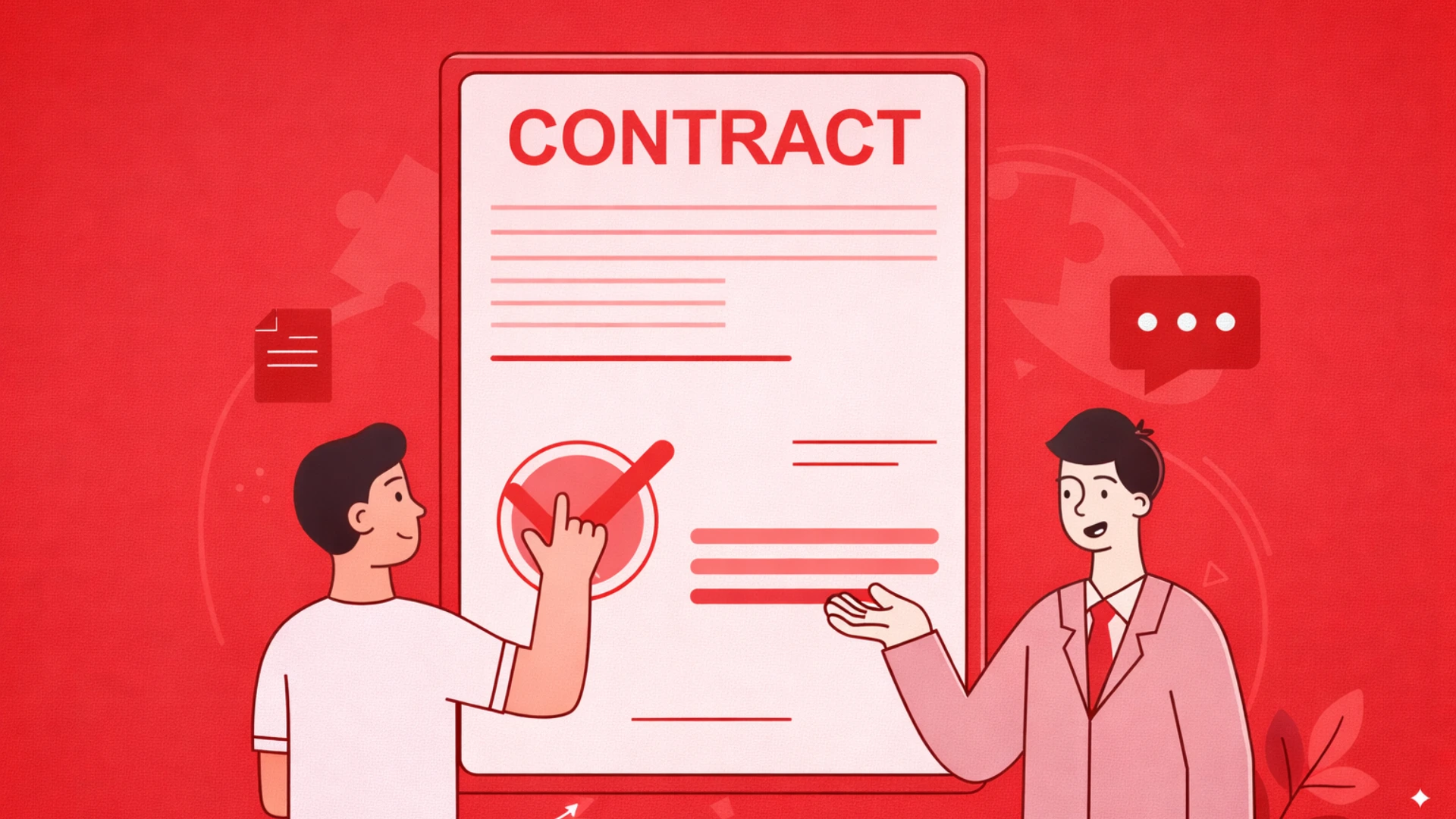📌 Key Takeaways
- State variables in smart contracts store permanent data on blockchain, persisting between all function calls and transactions.
- Proper access control using modifiers prevents unauthorized modification of critical state variables by malicious actors.
- Storage packing reduces gas costs by fitting multiple smaller variables into single 32-byte storage slots efficiently.
- The checks-effects-interactions pattern protects state variables from reentrancy attacks during external calls.
- Teams across USA, UK, UAE, and Canada must validate all inputs before modifying state variable values.
- Initialize all state variables explicitly to avoid dangerous default values that attackers can exploit.
- Use events to emit state changes for off-chain tracking while minimizing expensive storage operations.
- Regular audits should verify state variable handling follows security best practices before mainnet deployment.
Introduction to State Variables in Smart Contracts
Understanding state variables in smart contracts is fundamental to building secure blockchain applications. After eight years of helping teams across USA, UK, UAE, and Canada build production-ready smart contract services, I’ve seen countless vulnerabilities traced back to improper state variable management. These issues range from minor gas inefficiencies to catastrophic security breaches.
State variables form the backbone of any smart contract, storing critical data like user balances, ownership records, and configuration parameters. Unlike traditional databases where you can patch issues after deployment, blockchain’s immutability means mistakes with state variables can be permanent and expensive to remediate.
This comprehensive guide covers everything you need to know about safely managing state variables in smart contracts. We’ll explore declaration patterns, security considerations, gas optimization strategies, and common pitfalls that have caused millions in losses across the blockchain industry.
What Are State Variables?
State variables in smart contracts are declared at the contract level outside any function. They represent the contract’s persistent state stored directly on the blockchain. Every time a function modifies a state variable, that change is recorded permanently in a new block, making the update visible to all network participants.
For example, if a smart contract tracks how many tokens exist, that number is stored in a state variable. If a contract has an owner, the owner’s address is also a state variable. State variables are saved in contract storage, which is the most expensive place to store data on the blockchain. This is why developers should only store data that truly needs to be permanent.
Persistent Storage
Data survives between function calls
On-Chain Data
Stored directly on blockchain
Gas Intensive
Most expensive data location
Security Critical
Requires careful protection
Difference Between State and Local Variables
Understanding the distinction between state and local variables is crucial for proper smart contract design. This knowledge directly impacts gas costs, security, and overall contract architecture decisions.
| Characteristic | State Variables | Local Variables |
|---|---|---|
| Storage Location | Contract storage (blockchain) | Memory or stack |
| Persistence | Permanent across calls | Temporary, function scope |
| Gas Cost | High (20,000+ gas for writes) | Low (3 gas for stack ops) |
| Declaration | Contract level | Inside functions |
| Visibility Options | public, internal, private | Function scope only |
⚡
Why State Variable Management Is Important
Proper management of state variables in smart contracts directly impacts security, gas efficiency, and contract reliability. Teams building DeFi protocols in USA or tokenization platforms in Dubai cannot afford mistakes in this area. According to Cyfrin Blogs, The consequences range from minor inconveniences to complete protocol failure.
🔒 Security Impact
Improperly managed state variables are the root cause of most smart contract exploits, including reentrancy attacks.
💰 Financial Risk
Billions of dollars have been lost due to state variable vulnerabilities across DeFi protocols and NFT platforms.
⛽ Gas Costs
Inefficient state variable usage can make contracts prohibitively expensive to use, driving away users.
Common Risks with State Variables
Identifying risks early prevents costly security incidents. Here are the most common vulnerabilities associated with state variables in smart contracts that teams across UK and Canada encounter during audits.
| Risk Type | Description | Prevention |
|---|---|---|
| Reentrancy | State modified after external calls | Checks-effects-interactions pattern |
| Uninitialized | Default values cause issues | Explicit initialization |
| Access Control | Unauthorized modifications | Role-based modifiers |
| Storage Collision | Proxy upgrade conflicts | Storage gap patterns |
Declaring State Variables Safely
Visibility Selection
- Use private for internal data
- Use internal for inheritance
- Use public only when needed
Type Selection
- Use smallest suitable type
- Consider storage packing
- Avoid dynamic arrays when possible
Initialization
- Always initialize explicitly
- Use constructor for setup
- Validate initial values
Updating State Variables Securely
Secure state variable updates follow established patterns that prevent exploitation. The checks-effects-interactions pattern is the gold standard for protecting state variables in smart contracts during function execution.
Checks First
Validate all conditions, inputs, and permissions before any state modification occurs.
Effects Second
Update all state variables immediately after validation passes and before external calls.
Interactions Last
Make external calls only after all state changes are complete to prevent reentrancy.
Access Control for State Variables
Implementing proper access control prevents unauthorized modification of state variables in smart contracts. Role-based access control using modifiers is the industry standard approach adopted by teams in USA, UK, and UAE.
🔐 Access Control Strategies
Owner Only
Single admin control
Role Based
Multiple permission levels
Multi-Sig
Requires multiple approvals
Timelock
Delayed execution for changes
Gas Optimization and State Variables
Storage operations are the most expensive in Ethereum. Optimizing state variables in smart contracts can reduce gas costs by 40-60%, making your contracts more affordable for users in Canada, UK, and other markets.
| Technique | Savings | Complexity |
|---|---|---|
| Storage Packing | 20-40% | Low |
| Memory Caching | 15-30% | Low |
| Batch Updates | 25-45% | Medium |
| Storage Deletion | Gas refund | Low |
State Variable Management Lifecycle
1. Declaration
Define variables with appropriate types, visibility, and storage layout considerations.
2. Initialization
Set initial values in constructor or initializer with proper validation.
3. Access Control
Implement modifiers and role-based permissions for state modifications.
4. Validation
Check all inputs and conditions before any state variable updates.
5. State Update
Modify state variables following checks-effects-interactions pattern.
6. Event Emission
Emit events for all significant state changes for off-chain tracking.
7. Testing
Comprehensive unit and integration tests for all state transitions.
8. Audit Review
Professional security audit verifying state variable handling.
Best Practices for State Variable Management
Standard 1: Always initialize state variables explicitly rather than relying on default values.
Standard 2: Use the checks-effects-interactions pattern for all functions modifying state.
Standard 3: Implement role-based access control for all sensitive state modifications.
Standard 4: Pack related smaller variables together to optimize storage slot usage.
Standard 5: Emit events for all significant state changes to enable off-chain monitoring.
Standard 6: Use ReentrancyGuard on all functions that modify state before external calls.
Common Mistakes to Avoid
Common mistakes with state variables include exposing sensitive data publicly, updating state after external calls, overusing storage, ignoring gas costs, and implementing weak access control. These mistakes often lead to security issues and high transaction costs. Learning from past failures and following secure design principles helps developers avoid these problems.
| Mistake | Impact | Solution |
|---|---|---|
| No Initialization | Exploitable defaults | Explicit initialization |
| Missing Access Control | Unauthorized changes | Role-based modifiers |
| State After Calls | Reentrancy attacks | CEI pattern |
| No Input Validation | Invalid state | Require statements |
⚠️ Real-World Example: The DAO Hack
The infamous DAO hack in 2016 exploited improper state variable management. The contract updated balances after external calls, allowing recursive withdrawals. This $60 million exploit demonstrates why state variables in smart contracts must be updated before any external interactions.
State Variable Compliance Checklist
| Requirement | Priority | Status |
|---|---|---|
| All variables explicitly initialized | Critical | ☐ / ☑ |
| Access control implemented | Critical | ☐ / ☑ |
| CEI pattern followed | Critical | ☐ / ☑ |
| Storage layout optimized | High | ☐ / ☑ |
| Events emitted for changes | Medium | ☐ / ☑ |
Final Thoughts on Safe State Variable Usage
Proper management of state variables in smart contracts is fundamental to building secure blockchain applications. The patterns and practices covered in this guide represent years of industry learning, often from costly mistakes that could have been prevented.
Teams across USA, UK, UAE, and Canada should treat state variable security as a non-negotiable requirement. Initialize explicitly, implement proper access controls, follow the checks-effects-interactions pattern, and optimize for gas efficiency without compromising security.
Remember that state variables in smart contracts are permanent and publicly visible. Design with this reality in mind, and always have your code professionally audited before handling real value. The investment in proper state variable management pays dividends in security and user trust.
Need Help With State Variable Security?
Our team has 8+ years of experience securing smart contracts for teams worldwide. Get expert guidance on state variable management.
500+ Contracts Audited • USA • UK • UAE • Canada
Frequently Asked Questions
State variables in smart contracts are permanent data storage elements that persist on the blockchain between function calls. Unlike local variables that exist only during function execution, state variables maintain their values permanently in contract storage. They define the contract’s state and are stored directly on the Ethereum blockchain. Teams across USA, UK, UAE, and Canada use state variables to track balances, ownership, configurations, and other critical data that must survive between transactions and function invocations.
State variables in smart contracts are stored in the contract’s permanent storage on the Ethereum blockchain. Each contract has dedicated storage slots, with each slot holding 32 bytes of data. The Ethereum Virtual Machine assigns storage locations based on variable declaration order and type. Storage is the most expensive area for reading and writing data, costing significantly more gas than memory or calldata operations. Understanding storage layout is essential for gas optimization and security.
State variables in smart contracts persist permanently on the blockchain and retain values between function calls, while local variables exist only during function execution and are discarded afterward. State variables consume storage slots and cost more gas to read and write. Local variables use memory or the stack, which is cheaper and temporary. State variables are declared outside functions at the contract level, while local variables are declared inside functions for temporary computations.
Common security risks with state variables in smart contracts include unauthorized modification through missing access controls, reentrancy attacks exploiting state changes, front-running based on observable pending transactions, and storage collision in upgradeable contracts. Improper initialization can leave variables in dangerous default states. Integer overflow or underflow can corrupt state values. Teams in Dubai and Canada must implement proper validation, access controls, and secure update patterns to protect state variable integrity.
Optimize gas costs for state variables in smart contracts by packing smaller variables together in single storage slots, using appropriate data types like uint128 instead of uint256 when possible, and minimizing storage writes. Read state variables into memory for multiple operations, then write back once. Use mappings instead of arrays for large datasets. Delete unused storage to receive gas refunds. Consider using events for data that doesn’t need on-chain retrieval.
State variables in smart contracts support three visibility levels: public, internal, and private. Public variables automatically generate getter functions accessible externally. Internal variables are accessible within the contract and derived contracts only. Private variables are restricted to the declaring contract. Note that private doesn’t mean hidden on blockchain, as all data is publicly visible. Visibility controls function access, not data confidentiality. Choose visibility based on intended access patterns.
Safely update state variables in smart contracts by following the checks-effects-interactions pattern. First validate all inputs and conditions, then update state variables, and finally make external calls. Use reentrancy guards on functions that modify state before external calls. Implement proper access controls using modifiers. Consider using atomic updates for related variables. Test state transitions thoroughly with unit tests covering all edge cases and boundary conditions.
State variables in smart contracts can have their values changed through functions, but their declaration and type cannot be modified after deployment. The contract code including variable definitions is immutable once deployed. To add new state variables or change types, you need upgradeable contract patterns using proxies. Be cautious with storage layout changes in upgrades to avoid storage collision. Some variables can be marked immutable or constant for optimization.
Reviewed & Edited By

Aman Vaths
Founder of Nadcab Labs
Aman Vaths is the Founder & CTO of Nadcab Labs, a global digital engineering company delivering enterprise-grade solutions across AI, Web3, Blockchain, Big Data, Cloud, Cybersecurity, and Modern Application Development. With deep technical leadership and product innovation experience, Aman has positioned Nadcab Labs as one of the most advanced engineering companies driving the next era of intelligent, secure, and scalable software systems. Under his leadership, Nadcab Labs has built 2,000+ global projects across sectors including fintech, banking, healthcare, real estate, logistics, gaming, manufacturing, and next-generation DePIN networks. Aman’s strength lies in architecting high-performance systems, end-to-end platform engineering, and designing enterprise solutions that operate at global scale.







